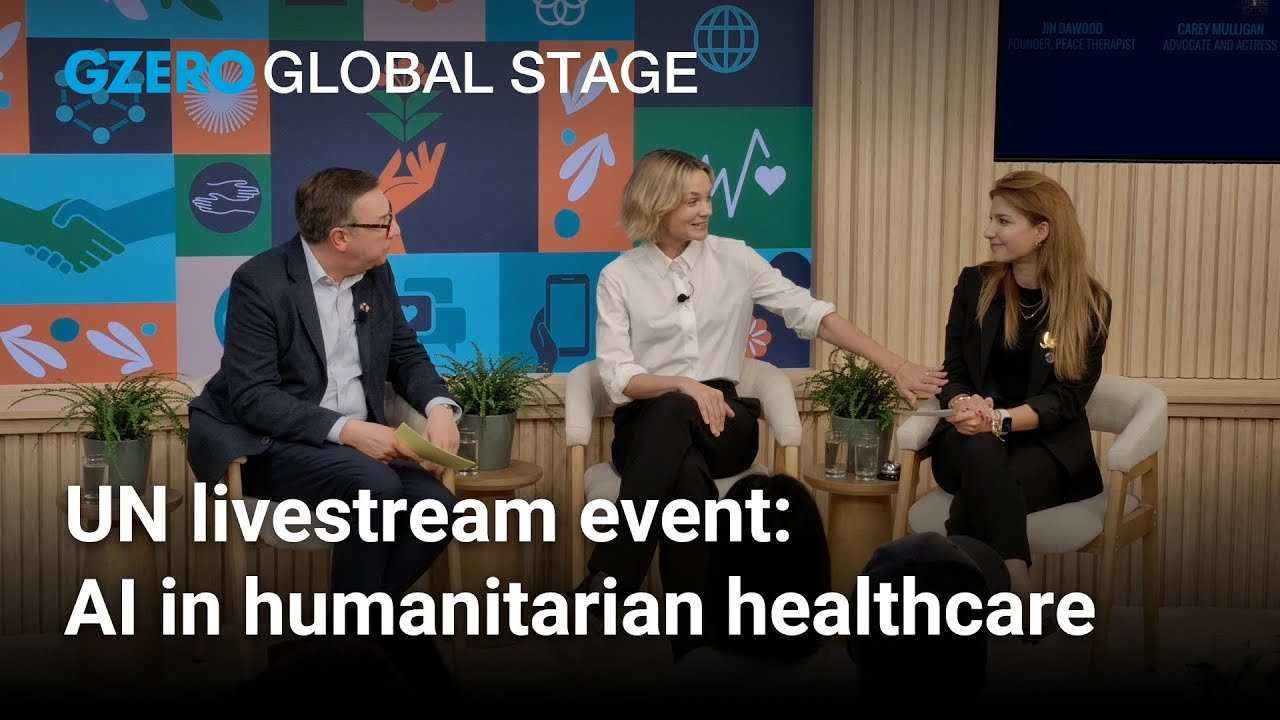October 10, 2025
We’re living in a time of record-high conflict, alevel of violence not seen since World War II. The past four years have been marred by deadly battles in Ukraine, Gaza, Sudan, Myanmar, and beyond, withapproximately 14% of the planet’s population now impacted by war.
While the more than 120 million people displaced by conflict have acute needs of safety, shelter, food, and education, there are needs unseen that too frequently go untreated.
A mental health crisis
In an unprecedented assessment this summer,UNICEF reported that 100% of children in Gaza are in need of mental health and psychosocial support (MHPSS.) While the pending peace deal could put an end to the physical violence, the road to true wellness will be long and complicated for all those who have survived.
Globally, there are an estimated 66 million people in humanitarian crises living with mental health conditions. And of the less than 0.029% of global GDP that goes to humanitarian assistance, only 2% of that amount goes to mental health services.
If untreated, the impacts of this trauma can contribute to higher rates of depression and anxiety, learning loss and disrupted education, and even self harm. Suicide is the top cause of death globally for people ages 15-29.
A Greentree plan grows
Last November, United Nations Deputy Secretary-General Amina Mohammed urged a gathering of more than 50 mental health experts to focus on this issue.
“We need to put the head back on the body” in our approach to humanitarian aid, DSG Mohammed told us in her closing remarks. Treating the needs of the body is only one part of the equation—caring for the mind is a large part of keeping a person well.
Now, a year after that event, the United Nations has launched the Greentree Acceleration Plan, named for the venue where the retreat was convened. With $13.2 million in backing from theWellcome Trust, the UN is embarking on two pilot programs, one in Chad where 40% of the population requires aid, and the other in Lebanon.
The goal is to find scalable solutions to bring better mental health care to more countries, communities, and conflict zones around the world.
A day for awareness
Today, on World Mental Health day, I wanted to share with you a conversation I recently had with actress Carey Mulligan and activist Jin Dawood on the sidelines of the UN General Assembly, during an event where the Greentree Acceleration Plan was announced.
Mulligan is an ambassador forWar Child, a UK-based charity that provides mental health care, education, and support to kids in conflict zones worldwide. Dawood, herself a former refugee and survivor of civil war in Syria, foundedPeace Therapist to provide digital MHPSS services to children in Arabic, Kurdish, Turkish, and English.
Both shared personal stories of children in crisis they’ve met through their work, and the importance of raising awareness for mental health support long after a war has ended.
Over dozens of trips to troubled regions, Mulligan has seen first-hand the impact that MHPSS can have on a child’s life. “Part of that is giving children the right to a childhood,” she said. “But also, you cannot expect a country to rebuild itself if children are illiterate and traumatized.”
As Dawood explained, “That's why it's so important for people to be able to have therapy, to be able to rebuild themselves from inside and start the inner peace, and also contribute to building peace in the world.”
Watch my full conversation with Carey Mulligan and Jin Dawood above..
More For You
Ian Bremmer sits down with former US Ambassador to NATO Ivo Daalder to unpack a historic shift in the transatlantic alliance: Europe is preparing to defend itself without its American safety net.
Most Popular
Think you know what's going on around the world? Here's your chance to prove it.
U.S President Donald Trump, U.S. Vice President JD Vance, and U.S. Secretary of State Marco Rubio pose for a family photo with other representatives participating in the inaugural Board of Peace meeting, at the U.S. Institute of Peace in Washington, D.C., U.S., February 19, 2026.
REUTERS/Kevin Lamarque
Argentina, Armenia, Belarus, Egypt, Indonesia, Jordan, Pakistan, Paraguay, Vietnam – to name only a few.
A poster featuring Andrew Mountbatten-Windsor, formerly known as Prince Andrew, is installed on a sign leading to the parking area of the Sandringham Estate in Wolferton, as pressure builds on him to give evidence after the U.S. Justice Department released more records tied to the late financier and convicted sex offender Jeffrey Epstein, in Norfolk, Britain, February 5, 2026.
REUTERS/Isabel Infantes
British police arrested former Prince Andrew Mountbatten-Windsor today over allegations that in 2010, when he was a UK trade envoy, he shared confidential government documents with convicted sex offender Jeffrey Epstein.
© 2025 GZERO Media. All Rights Reserved | A Eurasia Group media company.
